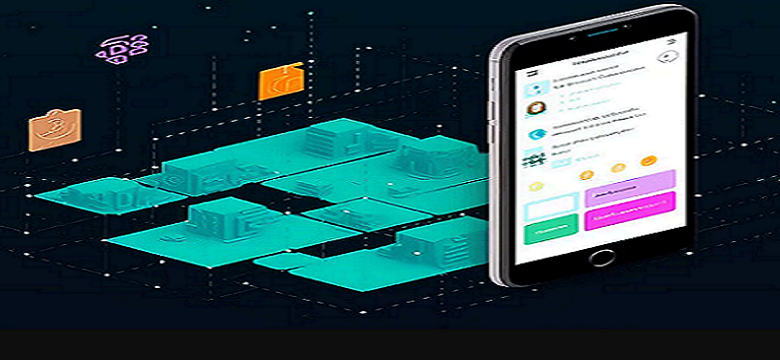Things to Know About Blockchain App Development: A Comprehensive Guide

Blockchain technology has revolutionized various industries by providing decentralized and secure solutions. As the demand for blockchain apps continues to rise, understanding the fundamentals and best practices of blockchain app development becomes crucial for businesses and developers alike. In this article, we will delve into the world of blockchain app development, exploring its key aspects, benefits, and challenges, while also providing expert insights and practical tips.
What is Blockchain App Development?
Blockchain app development is the process of creating applications that utilize blockchain technology as the underlying infrastructure. This technology ensures transparency, security, and reliability, making it suitable for a wide range of applications beyond cryptocurrencies.
Advantages of Blockchain App Development
Blockchain app development offers several advantages that set it apart from traditional centralized applications:
- Decentralization: Unlike centralized apps that rely on a single authority, blockchain apps operate on a decentralized network, ensuring no single point of failure and reducing the risk of data breaches.
- Enhanced Security: Blockchain’s cryptographic principles make it highly secure, as each block is linked to the previous one, forming an unalterable chain. This makes it nearly impossible to tamper with the data, ensuring data integrity.
- Transparency: Transactions recorded on a blockchain are visible to all network participants, ensuring transparency and accountability.
- Immutability: Once data is recorded on a blockchain, it cannot be altered or deleted, providing an accurate historical record.
- Faster Transactions: Blockchain allows for faster and more efficient transactions compared to traditional financial systems, enabling real-time settlements.
- Reduced Costs: By eliminating intermediaries and automating processes, blockchain apps can significantly reduce operational costs.
Challenges in Blockchain App Development
While blockchain technology offers numerous benefits, it also presents some challenges:
- Scalability: As the number of users and transactions increases, some blockchain networks face scalability issues, leading to slower transaction processing times.
- Regulatory Compliance: Adhering to various regulations can be challenging for blockchain app developers, especially in industries with strict compliance requirements.
- Interoperability: Achieving seamless integration between different blockchain platforms is a challenge due to varying protocols and standards.
- Energy Consumption: Some consensus mechanisms, like Proof of Work (PoW), consume significant energy, raising concerns about environmental impact.
- User Education: Blockchain technology is still relatively new, and users may require education to understand its benefits and how to use blockchain apps effectively.
Key Considerations for Blockchain App Development
Successful blockchain app development requires careful planning and execution. Here are some key considerations to keep in mind:
- Use Case Identification: Clearly define the problem your app aims to solve and how blockchain can provide a superior solution compared to traditional methods.
- Selecting the Right Blockchain Platform: Choose the most suitable blockchain platform (e.g., Ethereum, Hyperledger, EOS) based on your app’s requirements, scalability, and consensus mechanisms.
- Smart Contract Development:. Develop robust and secure smart contracts to govern transactions within your app.
- User Experience: Focus on creating an intuitive and user-friendly interface, as the success of any app depends on its user experience.
- Security Audits: Conduct thorough security audits to identify and address vulnerabilities in your blockchain app.
- Scalability Solutions: Implement scalability solutions, such as sharding and layer-two solutions, to ensure smooth and efficient operation, even during peak times.
Best Practices for Blockchain App Development
To ensure the success of your blockchain app, follow these best practices:
- Keep It Simple: Avoid unnecessary complexity in your app’s design and functionalities. Simplicity enhances user adoption and reduces the risk of bugs.
- Regular Updates and Maintenance: Consistently update your app to address bugs, security issues, and to improve overall performance.
- Community Engagement: Engage with the blockchain community to gain insights, feedback, and potential partnerships.
- Real-World Testing: Conduct real-world testing to validate the usability, security, and efficiency of your blockchain app.
- Scalability Testing: Test the scalability of your app to ensure it can handle a growing number of users and transactions.
FAQs about Blockchain App Development
- Q: What are the key features of blockchain technology?
- A: Blockchain’s key features include decentralization, transparency, immutability, enhanced security, and faster transactions.
- Q: Can blockchain apps be used in industries beyond finance?
- A: Yes, blockchain apps have applications in various industries like supply chain, healthcare, gaming, and voting systems.
- Q: How do smart contracts work in blockchain apps?
- A: Smart contracts are self-executing contracts with predefined conditions. They automatically execute actions when certain conditions are met.
- Q: What is the role of nodes in a blockchain network?
- A: Nodes are computers connected to a blockchain network that participate in validating and securing transactions.
- Q: Are blockchain apps secure from cyber attacks?
- A: While blockchain technology enhances security, no system is entirely immune to cyber attacks. Regular security audits and best practices are essential.
- Q: Can blockchain apps be integrated with existing software systems?
- A: Yes, blockchain apps can be integrated into existing systems through APIs and other integration methods.
Conclusion
Blockchain app development is a dynamic and transformative field with immense potential for innovation. By understanding the key aspects, advantages, challenges, and best practices, developers and businesses can harness the power of blockchain technology to create secure, transparent, and efficient applications that shape the future of various industries.




